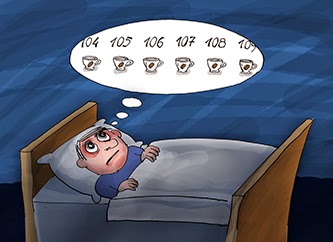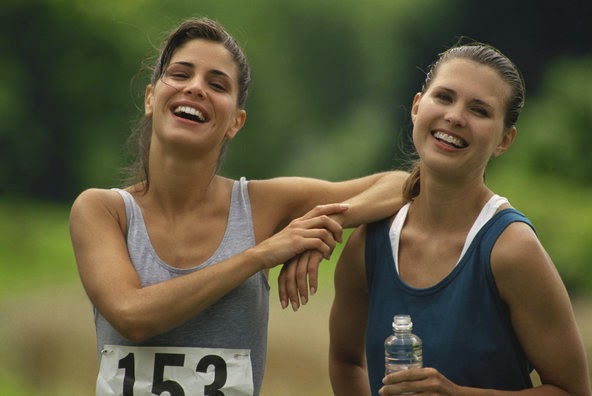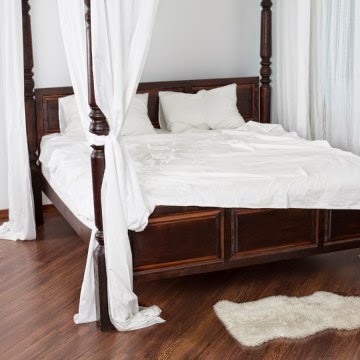More Sleep, Less Medicine: Sleep Disorders Center Breaks Insomnia’s Grip
Joint program of Rutgers and RWJ University Hospital offers range of sleep studies and treatment options for patients of all agesBy Robin Warshaw Friday, September 12, 2014 Patients suffering from insomnia find relief through a joint program through Rutgers Robert Wood Johnson Medical School and Robert Wood Johnson University Hospital. For more than 30 years, Donna* believed her chronic insomnia was something she and medical science couldn’t change. Most nights, she had difficulty falling asleep and staying asleep. Her doctors prescribed various medicines that did little to help. Donna pushed her way through an ever-present blanket of fatigue to succeed in …
Can Sleep Apnea Predict a Heart Attack?
By Eric Cohen, MD Published Sep 8, 2014 Many of the patients I see who complain about sleep issues have some level of obstructive sleep apnea (OSA). In fact, as many one in five adults have at least a mild form of sleep apnea. People with obstructive sleep apnea are also more likely to have hypertension, high blood pressure, and cardiovascular disease. Now, as a result of the latest research, when we test for sleep apnea we also examine and focus on the state of a person’s heart. The link between sleep apnea and cardiovascular disease has been studied for several years. In 2013 it …
Sleep Apps in the Spotlight
Another sign that sleep health is going more mainstream every day is the proliferation of smart phone applications (apps) being designed for the consumer market. Hayley Tsukayama, consumer technology beat reporter for The Washington Post, writes that there are “dozens” of sleep apps in Apple and Google’s app stores. Some offer meditation tips or even play soothing white noise. “Perhaps most intriguing of all, there’s also a whole class of apps devoted to sleep analysis,” she writes, “and apps that you leave up on your phone’s screen while you snooze that monitor your sleep based on your movements and the sounds …
Is Exercise Bad for Your Teeth?
By GRETCHEN REYNOLDS SEPTEMBER 24, 2014 12:01 AM Vigorous exercise is good for almost all of the body — except perhaps the teeth, according to a surprising new study of athletes. The study, published in The Scandinavian Journal of Medicine & Science in Sports, found that heavy training may contribute to dental problems in unexpected ways. There have been hints in the past that athletes could have a heightened risk for cavities and other oral issues. In a studypublished last year in The British Journal of Sports Medicine, dentists who examined 278 athletes at the 2012 Summer Olympics in London reported …
Drs. Oz and Roizen: Improve dental care for healthier teeth and body.
Drs. Oz & Roizen: September 21, 2014 A walk down the toothpaste aisle at your local drugstore clearly shows that having whiter, healthier teeth is a 21st-century obsession. But it turns out that it’s always been a challenge: Otzi – a 5,300-year-old mummy retrieved in 1991 from a glacier in the Alps – had cavities and severe gum disease, researchers reported recently. And archeologists have discovered that more than 1.5 million years ago, our very early ancestors (Homo erectus) pried bits of dinner from their teeth with the world’s first toothpicks. Ironically, even though these days you can choose from …
Notes from Dr. Norman Blumenstock SomnoMed provides us four different oral appliances to choose from that can be used for patients with obstructive sleep apnea. Medicare and medical insurance companies generally provide benefits for oral appliance therapy. September 24, 2014 02:40 PM Eastern Daylight Time FRISCO, Texas–(BUSINESS WIRE)–SomnoMed (ASX:SOM) announced this week that it has received Medicare approval for its new SomnoDent® Herbst Advance Classic and Flex oral devices. The devices, which effectively treat obstructive sleep apnea, have received full CMS/PDAC approval and were allocated the HCPCS Code of E0486 for DME billing, allowing for Medicare reimbursement in the United …
Sleep Apnea Predisposes To Impaired Brain Blood Flow With Physical Activity
Notes from Dr. Norman BlumenstockMedicalresearch.com interviews Paul Macey, PhD, lead researcher on a study that provides evidence of sleep apnea hurting the brain Medical Research: Were any of the findings unexpected? Dr. Macey: We did not expect that breathing very hard into a small tube would lead to similar changes in brain blood flow in the sleep apnea and healthy people; we had expected the sleep apnea patients to show problems, as they did during the gripping and cold foot activities. We now believe the hand and foot activities need to use more higher brain areas, but that these areas …
5 Things You Can Do After Lunch to Improve Sleep Quality
Notes from Dr. Norman BlumenstockAfter-lunch strategies can improve sleep quality. If you incorporate these things during the day, it will improve your sleep quality at night. by Jamie Scott, of Whole9 South Pacific , who lives at 43 degrees south in New Zealand and wakes up to a light alarm.Last time we looked at the importance of sleep to overall health and touched on three pre-lunch strategies to help your body prepare for the coming night’s sleep. Today we’ll be talking about after-lunch strategies to improve sleep quality. If you incorporate these things during the day, it will improve your sleep quality at night. First, we …
Crowdsourcing Campaign Launched for Urine Test to Determine Whether Child Has Sleep Apnea or ADHD
Published on September 17, 2014 For millions of kids, a urine test could mean better, healthier sleep and possibly avoiding a mistaken diagnosis of ADHD. The East Peezy Pee Test is a new diagnostic test in development at NuSomnea that has been found to be 96.5% accurate in determining if a child has pediatric obstructive sleep apnea (OSA), according to NuSomnea. This condition is associated with symptoms often mistaken for attention deficit/hyperactivity disorder (ADHD). This week, NuSomnea launched an Indiegogo fundraising campaign to help complete the development of the urinalysis test and to conduct another validation study in children, to …
Sleep sensors: waking up to the need to study our night’s rest
Notes from Dr. Norman Blumenstock Many people are turning to fitness trackers to help boost the health benefits of better sleep Every night Jack Hammond straps a small gadget to his wrist. The sensor claims to track his sleep, monitoring every toss and turn so that when he wakes it can tell him how long he slept, how much of it was deep sleep – and how often he was woken up by his unsociable neighbor. “I can see that I need about four hours’ deep sleep to feel refreshed, and I need to be asleep for about eight hours for …







